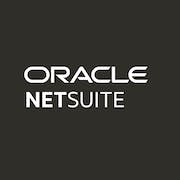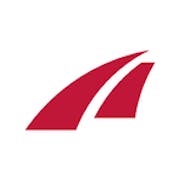Looking for the best financial management software? Our comprehensive buyers guide includes top-rated options with features, pricing, and expert reviews. Make an informed decision and streamline your finances today.
Are you looking for ways to streamline your financial management process and improve your company's bottom line? Investing in high-quality financial management software can be an excellent solution for businesses of all sizes. Not only do these programs offer a simplified way to track expenses and monitor cash flow, but they can also provide valuable insights into your company's financial health. With a wide range of options on the market, finding the right solution can be daunting. That's why we've put together this buyer's guide to help you navigate the complex landscape and ultimately select the best tool to meet your specific needs.
What is a financial management software?
This is a type of software that helps businesses manage their financial operations more effectively. It can be used to keep track of invoices, expenses, and other financial transactions, as well as to analyze data and generate reports. The tool can be used by a wide variety of businesses, including small startups, mid-sized companies, and large corporations in various industries such as finance, retail, healthcare, and more.
Its common use cases are:
- Budgeting and forecasting - This software can help businesses create and track budgets, as well as forecasting future expenses.
- Accounts payable and receivables -It helps businesses manage their cash flow by automating payment collection and vendor payments.
- Financial reporting - Generating financial statements and reports is a time-consuming process. The system can automate such reports generation that makes it easier for businesses to view their financial state.
- Financial analysis - A financial management application helps create detailed reports to help analyze finances, making it easier to identify areas of improvement.
- Tax compliance - It also helps comply with tax regulations by tracking sales tax, expense receipts, and other tax requirements.
- Payroll management – This program can handle payroll processing, including tax deductions and direct deposit.
Types of companies that use such an innovative app include small businesses seeking to manage their finances better, medium-sized companies with complex accounting details, and large corporations that want to automate their financial processes. Businesses in various industries such as finance, supply chain, healthcare, retail, and others benefit from it. Overall, the software simplifies the process of managing finances by automating tasks, improving accuracy, and allowing easier analysis of financial data.
What benefits does a financial management application come with?
Financial management software has become an essential tool for many companies. It helps businesses to streamline their financial operations by automating complex financial tasks and providing accurate financial data in real-time. Here are some of its main benefits:
- Better financial planning: It allows businesses to create and track budgets, forecast future revenue and expenses, and identify potential cash flow issues. By having a clear understanding of their financial position, businesses can make informed decisions and plan more effectively for the future.
- Improved accuracy: Manually managing financial data can be error-prone and time-consuming. This technology automates financial processes, reducing the risk of errors and freeing up time for employees to focus on higher-level tasks.
- Increased efficiency: Automated financial processes with financial management software can help businesses to save time and money. For example, it can automate invoicing, payment processing, and bank reconciliations.
- Enhanced reporting: A financial management program provides businesses with better visibility into their financial data. This allows businesses to quickly and easily generate reports that provide insights into their financial performance, such as revenue, expenses, and profits.
- Enhanced security: It often includes robust security features to protect financial data. This includes measures such as password protection, data encryption, and user access controls.
10 key features of financial management software
Here are 10 common features that you should look for in a financial management system:
1. Accounting:
It should have robust accounting capabilities, including general ledger, accounts payable, accounts receivable, and bank reconciliation.
2. Budgeting and forecasting:
An effective financial tool allows businesses to create budgets and forecasts efficiently that reflect their business goals and help them plan for the future.
3. Financial reporting:
Reporting capabilities are incredibly valuable, allowing businesses to access financial data quickly and in real-time. Detailed reports can help identify trends, track performance, and provide insights for better decision-making.
4. Cash management:
Cash flow is the lifeblood of any business, which is why it’s essential to have a solution that can help manage cash effectively. The program should have advanced features such as cash forecasting, cash flow analysis, and cash position reporting.
5. Compliance:
Keeping up with tax regulations and accounting standards can be a difficult and time-consuming process. A financial management package can make it easier to stay compliant with relevant regulations by automating compliance processes and providing easy access to relevant data.
6. Project costing:
If your business works on projects, project costing capabilities can help you allocate costs to specific projects, track ongoing expenses, and determine profitability on a project-by-project basis.
7. Inventory management:
Inventory management is crucial for any business that carries physical products. The tool should allow you to track inventory levels, manage stock levels, and generate purchase orders when required.
8. Payroll:
Managing payroll can be a complex process, which is why many financial management platform solutions include payroll capabilities. It should be able to calculate employee salaries and taxes, generate pay stubs, and manage other payroll-related tasks.
9. Multi-currency support:
For businesses operating in multiple countries, multi-currency support is a must-have additional feature. The platform should be able to handle multiple currencies and provide automatic currency conversions when required.
10. Integration:
Financial management software should be able to integrate with other business tools seamlessly. This includes everything from CRM systems to marketing apps to inventory management tools.
These 10 features are just the beginning of what you should look for when selecting a financial management platform. By choosing a comprehensive solution that meets your business needs, you can improve efficiency, reduce errors, and make better-informed business decisions.
Things to consider when adopting a financial management package
Choosing the right financial management system is critical to achieving business goals and objectives. However, it can be an overwhelming task as there are a wide array of factors that businesses need to consider when making the purchase. Here are some most important factors to consider when purchasing one.
- Functionality: Different financial management software offer different variety of features, so it's important to identify the specific needs of your business before making a purchase. Determine what features and functions are critical to your business, and look for one that can provide those.
- Scalability: As your business grows, so will your financial needs. It's important to choose one that can grow with your business and adapt to your changing needs. Look for an application that can handle large volumes of data, complex financial processes, and multiple users.
- Integration: It should seamlessly integrate with other systems in your business to avoid unnecessary manual processes. Consider whether it can integrate with your existing systems, such as your accounting solutions, CRM, or HR software.
- Ease of use: No one wants to spend hours trying to figure out complex application. Look for one that is user-friendly and easy to navigate. Ensure that the app has a user-friendly interface, intuitive workflows, and comprehensive documentation or training resources.
- Cost: Cost is always a significant factor when making any purchase, but it's important to look beyond the upfront cost of the program. Consider factors such as ongoing maintenance and support costs, upgrade costs, and potential costs for add-ons or customization.
- Security: Financial data is sensitive and needs to be protected. Ensure that the solution has robust security features, such as user authentication, role-based access controls, and encryption of sensitive data.
- Support: Choose a vendor that provides excellent customer support. Consider factors such as response time, availability of support channels, and the vendor's reputation for customer service.
Market trends for financial management software
Whether it's a small business or large-scale enterprise, financial management software has become instrumental in the efficient management of accounting processes. This year and beyond, trends will emerge that will shape this technology's future.
Trend #1
One of the most significant trends is the rise of cloud-based financial management tools. The cloud-based model offers flexibility, mobility and 24/7 accessibility, without the need for installation and maintenance of complex systems.
Trend #2
Another trend is the increasing use of AI and machine learning automation to handle routine financial tasks like invoicing, receipt collection and bookkeeping. SAP found that 90% of corporate controllers will soon be using a combination of RPA and AI to automate everything from financial reports and closes to tax preparation and payroll. These tools not only save time but also reduce errors and streamline financial processes.
Trend #3
Blockchain technology will also play a critical role in financial management systems by making transactions secure and transparent.
Trend #4
Lastly, user experience will be the key factor in the selection process. Thus, software developers will strive to make their software intuitive, easy-to-use, with responsive customer service, and provide extensive training and support. These trends are set to shape the future of this industry providing accounting professionals with innovative tools to grow their business.
Conclusion
In conclusion, the investment in financial management software is not merely an operational decision but a strategic move that can significantly impact a business's competitiveness and long-term success. By leveraging such software, businesses can streamline their financial processes, gain valuable insights, make informed decisions, and ultimately, stay ahead of the competition. The ability to efficiently manage finances enhances overall performance, fosters growth opportunities, and solidifies the foundation for sustained success. Therefore, investing in one is not just about managing numbers; it's about securing a competitive edge and paving the way for enduring prosperity.








